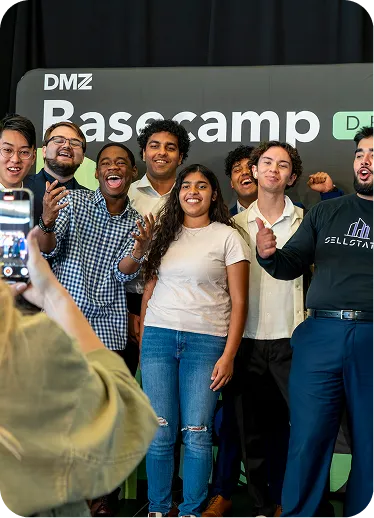Canadian foodies, rejoice. These startups, Pass The Table and Urbery, are reshaping your dining experience.
Pass The Table connects diners with unique, memorable and meaningful out-of-house dining encounters. Launched in September 2014, the startup gives exclusive access to curated and tailored restaurant menus in Toronto, such as 10-courses of Japanese tapas at Hapa Izakaya or a pig's head dinner at Farmhouse Tavern. You may even find a chef who wants to have you over to their own home for a personalized dinner.
The idea for Pass The Table came very naturally to founder Jason Finestone, an established professional food writer.
"I had a lot of amazing experiences, and I wanted to give that type of experience to the general public and connect people more deeply with the restaurants that host them, the chefs that are cooking for them, the producers of their beverages and the growers of their ingredients," said Finestone. "With us, you're always getting a VIP treatment."
Pass The Table also organizes large-scale events and dinners at exciting and innovative venues, such as the Toronto Island and the Dock Ellis brewery, and custom curation events, like anniversary dinners or wedding parties. Whether you're a single diner or part of a big group, there's a culinary adventure waiting for you.
Pass The Table offers experiences ranging from $35 a person up to $160 a person for more premium, one-off events. Most bookings are paid partially in advance, and the remainder is due in house. The startup's revenue comes from the booking fee built into the price of the experience.
To the diners' benefit, Pass The Table offers incredible experiences that can't be replicated but are exclusively accessible through the platform. "It's something that nobody else in the restaurant is having, so people walk by and say, 'Oh my gosh, how did you get that?' It's like, 'Ah, man, you have to go to Pass The Table.'
In the immediate future, Finestone's eyes are set on Vancouver and Chicago for expansion. But ultimately, he intends to reach even further afield.
More in the mood for dining in? Urbery has you covered: they'll bring you all the grocery and alcohol items you need to fire up an awesome meal at home, all within as little as two hours.
Since the spring of 2015, Urbery has catered to everyone looking to find ways to save time with grocery shopping and preparing food - young millennials, busy parents, working professionals and persons with a disability. Customers can contact Urbery's Grocery Guru in real time via a simple messaging system that allows them to track or make changes to their order.
The Urbery team, including founder and CEO Mudit Rawat, comes from a strong retail background. This has enabled them to integrate a rewarding loyalty program based on points that can be converted to order discounts or charitable donations (coming soon) and a freshness guarantee policy that further ensures full customer satisfaction.
Urbery's revenue model is two-fold. For one, any order under $65 is charged a delivery fee that ranges from $5.99 to $9.99, while orders over $65 are given free shipping as an incentive. If alcohol is ordered, there is an additional $10 fee to cover legal delivery restrictions. Secondly, Urbery's price markups range from 15 to 20 per cent, depending on such factors as market demand and whether the product is in season. A third aspect of the model, which is still in the planning stage, is a brand partnership strategy that would see targeted advertisements to customers and, eventually, product promotions funded by the brands.
Using targeted data analytics, Rawat says Urbery is also about to launch recipe integration. As Rawat explains,
"What if you were buying certain products and the platform understood that and automatically sent you recipes saying, here's what you have and here's what you can make and here's how to do it?" he asked, adding that the customer experience is Urbery's biggest priority. This mindset has gotten them far to date, with their average user rating being a 4.8 out of 5.
Unlike their competitor Grocery Gateway, which operates their own warehouse, Urbery cuts costs by using an Uber-like, crowd source model.
"There's a reason why grocery delivery hasn't picked up [in Canada] even though e-commerce has exploded all across the world. It's just because financially it's very hard to operate," said Rawat. "We don't hold inventory, we don't have warehouses, and we use existing infrastructure with amazing grocery stores and liquor suppliers like Loblaws, Sobeys, Whole Foods and LCBO. People are buying from other people and doing it at their time and it becomes a complete variable cost of business."
Right now, Urbery typically defaults to Loblaws to fulfill orders as their stores are best placed within the Toronto delivery zone, but if a customer requests their groceries from another store, the Grocery Gurus are able to accommodate. Rawat says that the door is open for partnership opportunities with any GTA grocers.
Also on Urbery's agenda is expansion across the province and throughout Canada.
"Six months back, we were learning how to crawl. I think we've learned how to crawl and now we're walking. Next steps, we'll be running," said Rawat about the company's growth.
So, whether you're looking for a special dining extravaganza, or added accessibility and convenience in making a delicious dish at home, Pass The Table and Urbery are ready to help.


.webp)




